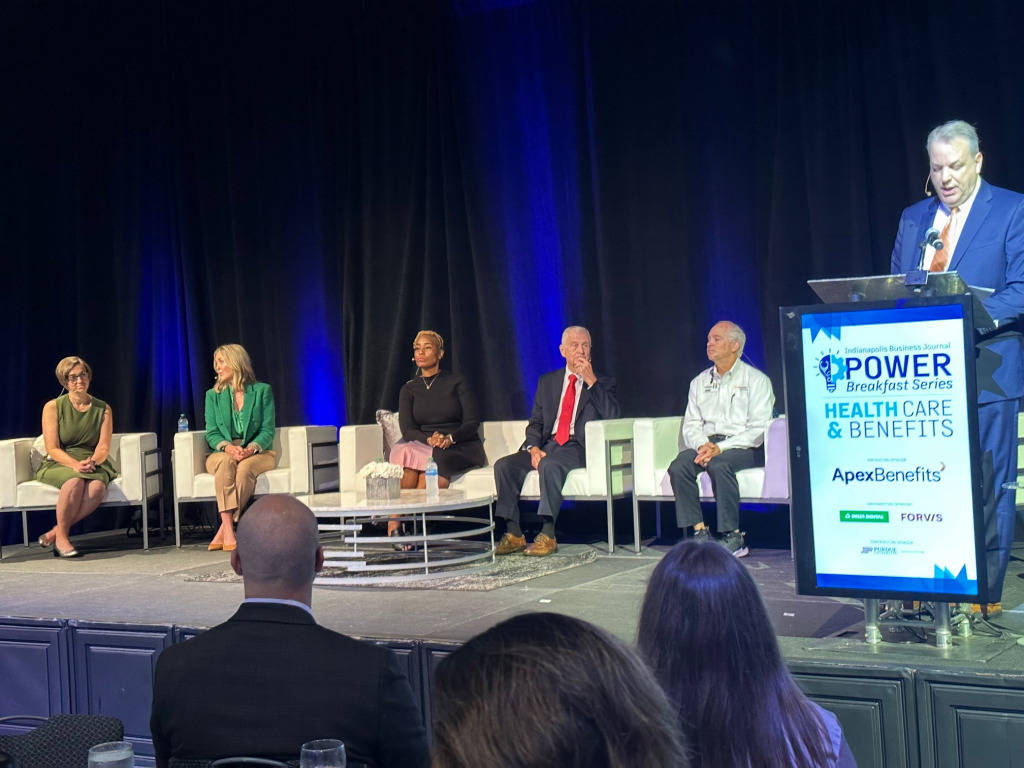Subscriber Benefit
As a subscriber you can listen to articles at work, in the car, or while you work out. Subscribe NowA national shortage of drugs is reaching a crisis level in some hospitals and other settings, some local health providers say, raising the alarm that some procedures and treatments are being delayed.
“Dealing with drug shortages is a full-time job,” Katasha Butler, part of the pharmacy leadership team at Eskenazi Health, said Friday morning at IBJ’s Health Care & Benefits Power Breakfast.
“It has been a crisis for quite some time,” she added. “It takes a lot of juggling on the provider part. All the pharmacists try to make sure that we are being able to take the patient with what we have available.”
About 99% of pharmacists who responded to a recent survey by the American Society of Health System Pharmacists said they are experiencing drug shortages. About a third said the shortages are leading to rationing, delaying or canceling treatments or procedures.
There were 309 active drug shortages in the second quarter of the year, according to the University of Utah Drug Information Service, nearing the all-time high of 320 drug shortages.
Among the worst shortages were for chemotherapy, hormonal drugs, and “crash cart” drugs such as prefilled syringes.
Dr. Elizabeth Struble, a family medicine physician in North Manchester and past president of the Indiana State Medical Association, said the shortage also is affecting some patients with chronic conditions, such as diabetics who can’t get insulin.
“Then they go to the (emergency room) because their blood sugar is high and they don’t have their insulin,” she said. “So, we’re really seeing that.”
On top of the shortage of drugs, a national shortage of pharmacists has put a squeeze on hospitals and retail pharmacies. In response, some national pharmacy chains have started shuttering locations.
Bryan Mills, president and CEO of Indianapolis-based Community Health Network, said if a patient gets discharged from Community’s hospital in Anderson, the nearest pharmacy is in Carmel, about 30 miles away.
“And the likelihood of them coming back (to the hospital) is higher, because they can’t get the meds,” he said.
“I think we all have a role in changing the way our system works,” said Beth Keyser, president of Anthem Blue Cross and Blue Shield of Indiana.
Butler said a shortage of sterile medications, such as saline, has been an issue for at least 15 years.
“I’m not really sure what the fix would be,” she said. “… But when you have something such as normal saline, which is used everywhere, that can be very alarming.”
Please enable JavaScript to view this content.


I love that Beth Keyser, of Anthem is weighing in. She’s not a physician and runs the racket of telling consumers that her company won’t pay for the medications that people need. People, mind you, that pay her company for coverage and to protect themselves.
I will say one thing for her though. She is right in that she definitely has a role to play in changing how the system works.